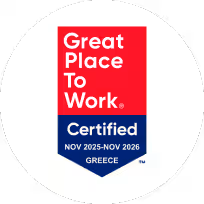ERP Software Diligence: What Experts Say vs Founder Claims

Introduction
Enterprise Resource Planning (ERP) systems promise end-to-end operational control, but investors and corporate strategy teams know that the reality of implementation can be far more complex. Drawing on proprietary survey data from ERP experts via the Origin Team it’s clear that evaluating ERP vendors goes well beyond growth projections and feature lists. Real diligence means dissecting cloud readiness, integration timelines, AI maturity, and the true cost of ownership, insights rarely visible in pitch decks.
ERP software sits at the heart of enterprise transformation. But as investors continue to explore the ERP Software market, understanding what operators actually experience during implementation is critical for deal success and post-acquisition strategy.
Quick Summary Table
Key Focus Areas
Technical Architecture
ERP implementation success hinges on technical architecture. 3 of the 4 surveys conducted by Origin Insights flagged integration complexity as a critical challenge, particularly when legacy systems or vertical-specific modules are involved. One finance lead noted, “We had 17 systems that needed to speak to the ERP, half the integrations didn’t work as scoped.”
Typical delays stem from misaligned data schemas, immature APIs, and under-resourced migration teams. Across mid-market calls, implementation delays averaged 6–9 months longer than initial vendor timelines. This directly impacts deal value and operational ROI.
Cloud vs On-Prem Realities
Cloud ERP is the dominant narrative, but regional disparities are striking. While 95% of global ERP RFPs now prioritise cloud-native solutions, Origin Insights calls reveal that markets such as Greece and parts of Southern Europe still lean on on-prem deployments due to data sovereignty concerns and low digital readiness.
A procurement lead in Athens shared, “Our board rejected the cloud option twice, even though IT recommended it, because they feared regulatory scrutiny.” This divergence between vendor expectations and market reality is a consistent diligence blind spot.
What Experts Say vs Founder Claims
Founders often position ERP rollouts as seamless and quick. The truth from operators suggests otherwise:
- “Setup took four times longer than promised, especially on finance modules.”
- “We were told it was plug-and-play. We needed six months just for data cleansing.”
Expert calls reinforce the need to scrutinise implementation playbooks and not rely solely on vendor-led case studies.
How Calls Are Used in Diligence
- Private Equity Teams use calls to validate cost assumptions, triangulate vendor claims, and pressure-test scalability in target verticals.
- Corporate Strategy Leaders use calls to benchmark adoption across regions, align future-state roadmaps, and plan cross-functional rollouts.
- Most Insightful Roles include: CFOs (for cost + risk), IT Directors (for integration and infrastructure), and Ops Leads (for adoption and change management).
Common Questions Investors Ask
What are common diligence risks in ERP?
- High total cost of ownership driven by extended integrations.
- Churn risk due to user resistance and poor training.
- Cloud resistance in regulated markets.
- Vendor lock-in with opaque licensing models.
How do investors evaluate AI capability?
ERP vendors increasingly promote AI add-ons, but most are basic:
- Predictive functionality (e.g. demand planning) often requires custom models.
- Real diligence means comparing AI claims to actual usage logs and demo environments.
What early red flags signal future churn?
- Poor adoption by non-finance teams (e.g. HR or Ops).
- Disproportionate ticket volumes in early weeks post-launch.
- Regional business units resisting training due to lack of localized support.
What This Means for Investors
ERP diligence is no longer about functionality checklists, it’s about executional insight. Firms that excel in implementation success are those that stress-test vendor claims using first-hand operator data. Origin Insights reveals that cloud readiness, AI maturity, and TCO modelling are make-or-break diligence factors.
Want to see real market dynamics before your next deal? Tap into expert networks like Origin Insights.
What Investors Learn from Origin
Based on ERP insights collected by the Origin team, diligence teams gain clarity on what actually happens post-sale. In Dialectica’s recent calls with ERP buyers, stress-testing AI modules and regional deployment strategies were flagged as top priorities. Origin Insights data shows that investor-ready diligence now starts with real operator evidence, not just forecasts or market maps.
Frequently Asked Questions
What are common diligence risks in ERP software?
Common risks include underestimated integration costs, vendor lock-in, regional resistance to cloud, and poor user adoption. Operators regularly flag budget overruns (2–2.5x), delayed timelines, and misclassified customization work as top issues.
How do investors evaluate ERP vendor claims around AI?
Investors compare promised AI functionality to real-world operator usage. Most ERP “AI” features today revolve around automated reporting or invoice matching. Predictive functions often require custom implementations. Live demos and usage log reviews are critical.
What early red flags signal future churn?
Poor non-finance adoption (e.g., HR, ops), ticket volume spikes, and limited training uptake are strong churn signals. Resistance from regional units, especially when localisation is missing, is another leading indicator flagged in diligence calls.
Sources and External Signals
Gheorghiu, G. (n.d.). ERP buying trends: Survey & profiles of companies that use ERP systems. SelectHub. Retrieved July 18, 2025,
Origin Insights data: Based on 200+ ERP calls from 2023–2025.
PwC Tech Due Diligence Report 2024: Average diligence timeline: 22 days for mid-market SaaS.
About the Author
Cecile Novion
Managing Director, Origin Insights
Cécile Novion leads the Private Equity and Origin Insights division at Dialectica, where she focuses on building decisive information advantages for top-tier private equity firms throughout their deal sourcing and due diligence workflows. Her strategic insight is shaped by senior leadership roles at global consulting firm BCG and mobility leader Beat.
Beyond her work at Dialectica, Cécile is a Board Member at La French Tech Bogota and is a passionate advocate for technology, entrepreneurship, and the empowerment of women in their personal and professional lives.
Connect with Cécile on LinkedIn.
-p-1600.avif)










.avif)


%20blog%20thumbnail.avif)







-01.avif)


